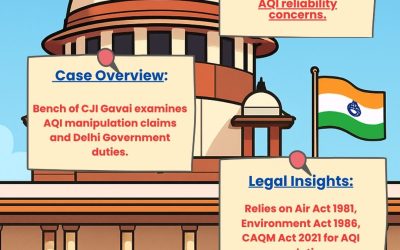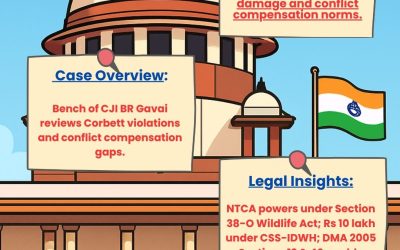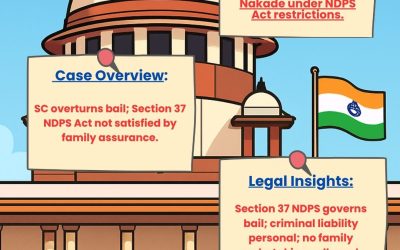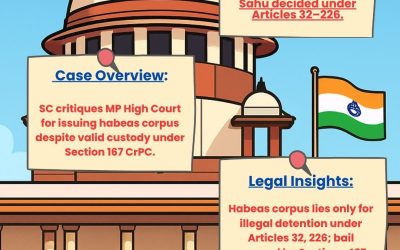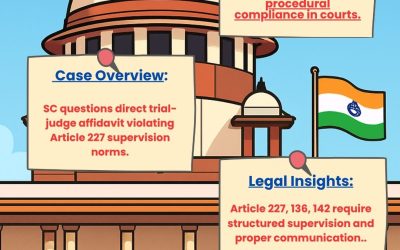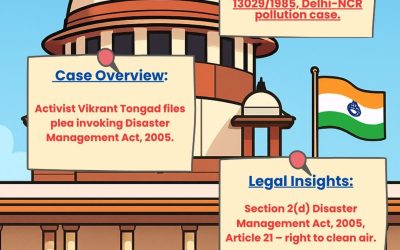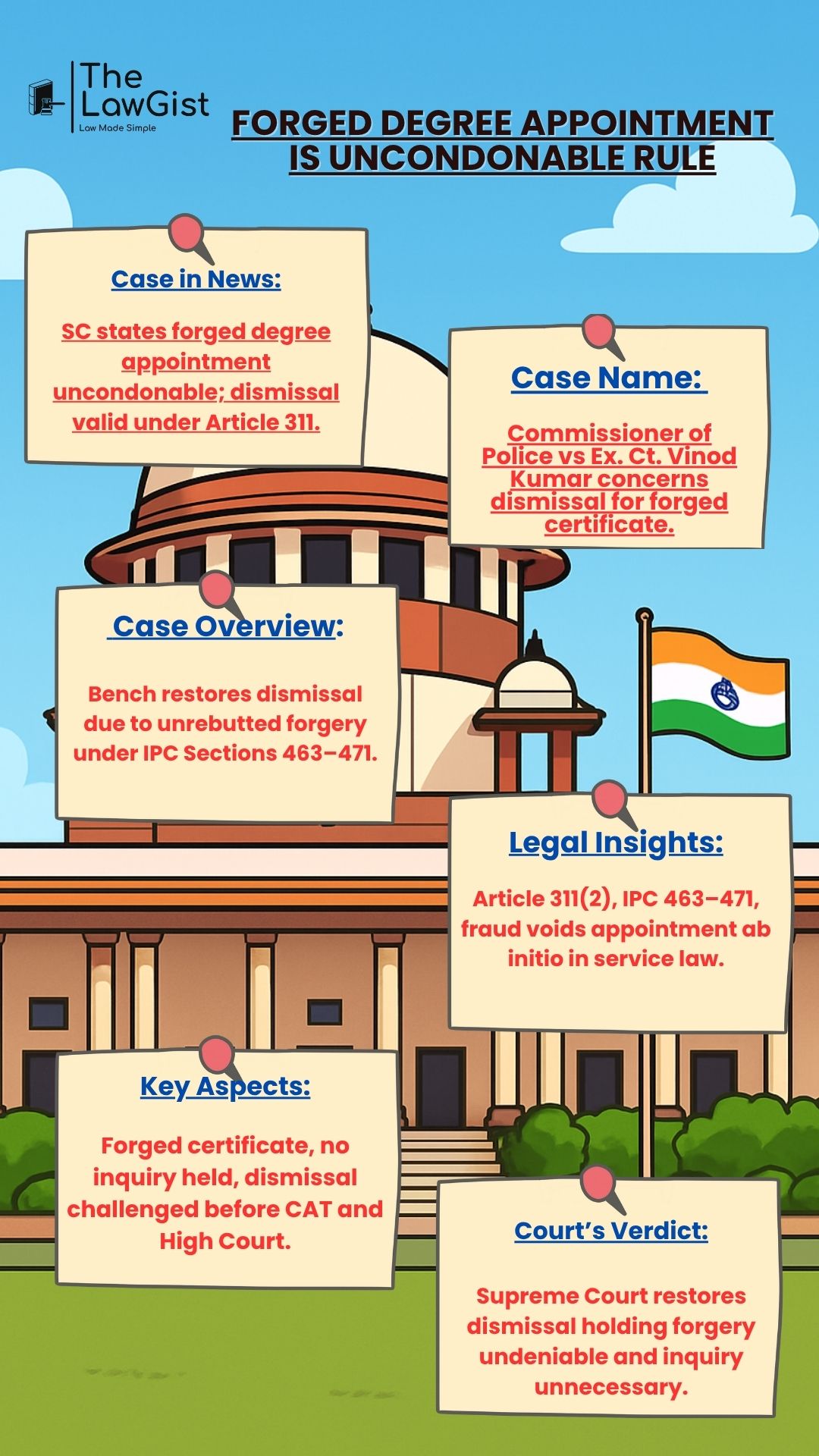
CASE IN NEWSSupreme Court Recalls Vanashakti Ruling on Clearances after majority finds earlier bar on post-facto EC legally flawed . |
Discover powerful Latin Maxims and simplify complex legal terms in seconds.
CASE OVERVIEW
CASE NAME: Confederation of Real Estate Developers of India (CREDAI) v. Vanashakti (2025)
The Supreme Court of India revisited its May 2024 Vanashakti judgment that had prohibited post-facto Environmental Clearances (EC) . A three-judge bench led by CJI BR Gavai, with Justice Ujjal Bhuyan and Justice K Vinod Chandran, examined review pleas filed by several stakeholders . The Court found that the earlier ruling failed to consider key precedents, making it per incuriam . Justice Bhuyan, however, dissented and upheld the original view .
Step into the world of justice with Courtroom Chronicles
KEY ASPECTS
Before listing the key issues, it is important to understand that the dispute centred on whether projects that were otherwise lawful could still obtain post-facto ECs without facing demolition . The applicants argued that the earlier ban ignored administrative realities and binding precedents .
- The original Vanashakti judgment invalidated 2017 and 2021 OMs allowing post-facto ECs .
- Several large public projects risked demolition due to the absolute prohibition .
- Core issue: Could post-facto ECs be permitted in exceptional, legally permissible situations?
- Whether the Vanashakti ruling overlooked coordinate bench precedents, making it per incuriam .
LEGAL INSIGHTS
Before examining the legal provisions, the Court analysed whether statutory powers permitted relaxation of prior-approval norms to avoid disproportionate harm . The legal framework demonstrated significant discretion vested in the Central Government .
- Section 3 & 5, Environment (Protection) Act, 1986 – empower the Central Government to issue directions and modify regulatory requirements including EC processes .
- Section 21, General Clauses Act, 1897 – authority to issue a notification inherently includes power to amend, vary or rescind it .
- Article 142, Constitution of India – allows the Supreme Court to pass orders to ensure complete justice, preventing public loss through unnecessary demolition .
- Doctrine of Per Incuriam – applied to assess whether earlier coordinate-bench precedents like Alembic (2020) and Pahwa Plastics (2023) were ignored .
COURT’S VERDICT
The majority of CJI BR Gavai and Justice K Vinod Chandran recalled the Vanashakti judgment, holding that an absolute prohibition on post-facto ECs would create wasteful demolitions, contradict statutory powers and harm public interest . They directed that the matter be placed before an appropriate bench for reconsideration . Justice Ujjal Bhuyan dissented, stating no legal error existed and that violators cannot rely on pollution-based arguments to justify unlawful constructions .
Source – Supreme Court of India
Read also – Constitution of India
The LawGist ensures exam success with quality notes—TPL, Current Affairs, Recent Judgments, and more. Backed by trusted resources and videos, The LawGist is every aspirant’s first choice.


